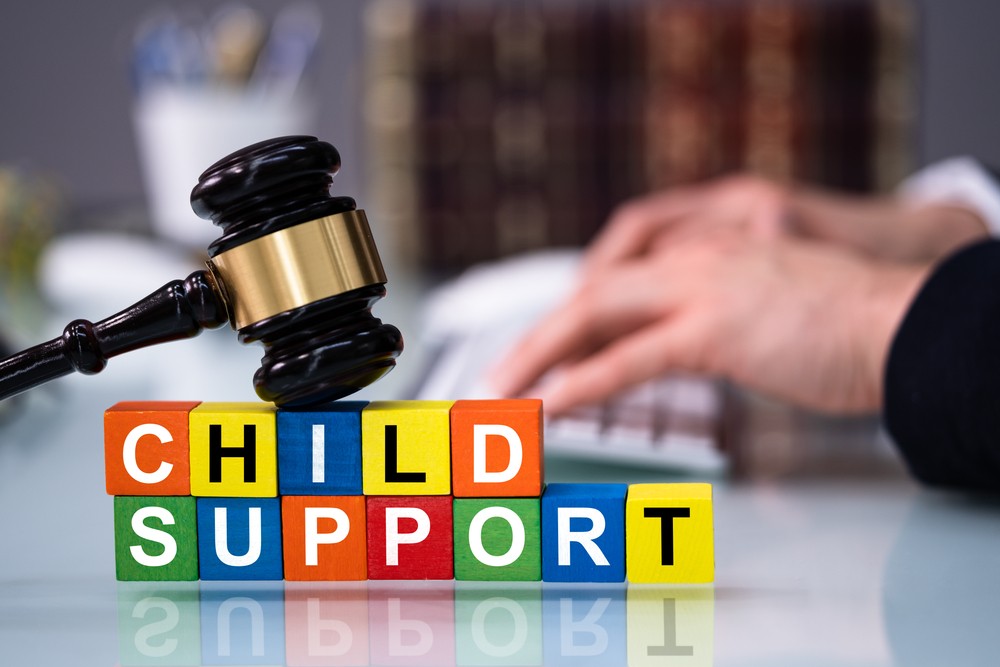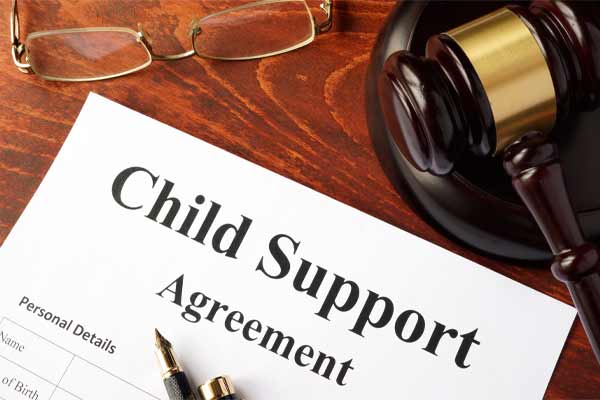What To Do If Your Ex Won’t Pay Child Support
August 09, 2021

Child support is a legal, financial obligation that’s outlined clearly by Colorado family law courts. However, it’s for non-custodial parents to make late payments or completely neglect their child support obligation altogether.
If you’re a custodial parent whose ex won’t pay child support, it’s frustrating, and it can put a lot of stress on your entire life. Also, this can affect your ability to provide for your kids financially.
The step in ensuring your ex-spouse pays child support is to make sure you have a valid and enforceable child support order in effect. In a Colorado Springs divorce, child support is mostly established as part of the temporary orders following the filing of the divorce petition. Also, child support may be ordered, if appropriate, during the final Divorce Decree.
It’s important for both parents to note that the end of a relationship, either through a divorce or legal separation, doesn’t mean an end to a parent’s responsibility to provide financial support to their children. If your ex-partner isn’t making child support payments, the experienced child support attorneys in Colorado Springs at Brighter Day℠ Law can help. To schedule your initial consultation, contact our Colorado Springs family law firm today at 719-733-9129, or chat with us online to learn how we can help.
Table of Contents
- What Are Child Support Arrears?
- What Can I Do if My Ex Refuses to Pay Child Support?
- Can a Different State Enforce Child Support if My Ex Moves Out of State?
- Do I Still Have to Pay My Ex Child Support if They Keep Me Away from My Children?
- Will the Family Law Court Excuse Me from the Child Support Arrearages I Accumulated while I was Temporarily Out of Work?
- How Can I Get Out of Contempt of Child Support?
- Contact Our Experienced Colorado Springs Child Custody Lawyers Today for Legal Advice!
What Are Child Support Arrears?
Non-custodial parents who fall behind on child support start accruing “arrearages,” and their payment status becomes “in arrears,” which can trigger a family court investigation. No matter the reason, if you don’t pay court-ordered child support, you’ll probably receive a notice in the mail asking you to appear before a family court judge to explain why you aren’t paying child support.
Often you can bypass a conversation with the family court judge by calling your caseworker to explain your financial situation and to plan on how you’ll pay child support arrears. Some family law courts require parents to pay child support debt in full. While others allow parents to make installment payments on the arrearages alongside other court-ordered payments.
If the child support arrears are significant, you may lose your driver’s and other professional licenses, and Colorado could garnish your tax refund, or you may go to jail.
What Can I Do if My Ex Refuses to Pay Child Support?
According to the Child Support Enforcement Act of 1984, district attorneys can help you collect court-ordered child support payments from a parent who refuses to pay. Usually, the district attorney serves the delinquent parent with papers, asking them to meet with the district attorney to set up a payment arrangement. Also, the papers warn that if the individual ignores those instructions, they may be subject to jail time.
However, jail time is sometimes counter-productive, since the said parent can’t earn income while in jail. Thus, jail time is typically used as a last resort. Instead, the district attorney may impose other legal consequences for not paying child support, which includes:
- Withholding federal tax refunds and paying child support using this money;
- Seizing property;
- Garnishing wages;
- Suspending occupational licenses;
- Suspending business licenses; and/or
- Revoking the negligent parent’s driver’s license.

Further, the U.S. Department of State might even deny issuance of a passport to a person who owes over $2,500 in child support.
Again, if that parent still refuses to pay child support, the court may hold him or her in contempt of court for not adhering to a court order and impose a jail term. This option is not commonly used, however, because the family law court recognizes that the goal here is to provide support for the children, which is difficult to do from a jail cell.
No matter what consequences are imposed, the fact is that you have many legal options if your ex isn’t paying child support. The National Child Support Enforcement Association also provides a list of child support agencies that can help you with child support enforcement.
Can a Different State Enforce Child Support if My Ex Moves Out of State?
Yes. The Uniform Interstate Family Support Act (UIFSA) lays out procedures that can help you enforce child support on noncustodial parents who reside in another state. Your options include:
- If the state you live in still has personal jurisdiction over the non-paying parent, you can ask the judge to impose enforcement of child support on him or her.
- If the state you live in doesn’t have personal jurisdiction over the child support payer, ask the family law court in your state to forward the child support order to the family law court in the state where your ex resides, and have a family court judge enforce child support.
- File an enforcement of child support request in a family law court where the child support payer lives.
- Send the child support order to the non-custodial parent’s employer and ask their employer to garnish the payments from his or her paychecks.
Apart from UIFSA, there are other acts that penalize deadbeat parents. For instance, the Child Support Recovery Act of 1992 states that it’s a federal crime for a parent not to pay child support to a parent living in another state. Also, Congress passed the Deadbeat Parents Punishment Act of 1998, which makes it a felony for a parent to refuse to make child support payments to a parent living in another state.
Do I Still Have to Pay My Ex Child Support if They Keep Me Away from My Children?
Yes. It’s essential not to confuse child support obligations with child custody and visitation rights, which are separate legal matters. If you have visitation rights and your former spouse is keeping you from your children, you must petition the family law court to enforce your visitation rights. Every parent has an obligation to support his or her children, thus, being kept away from your kids isn’t a valid excuse to refuse to pay court-ordered child support.
However, if the custodial parent disappears with your children for a lengthy period of time, a family court judge may rule you’re temporarily excused from paying child support. But the proper course of legal action is to continue paying child support and have the family law court enforce your visitation rights.
Will the Family Law Court Excuse Me from the Child Support Arrearages I Accumulated while I was Temporarily Out of Work?
In most states, it’s illegal to modify child support orders retroactively. If the child support payor becomes unemployed or otherwise can’t meet their child support obligation, that payor should request the court for a child support modification. However, if the family court judge grants your request and reduces your child support amount, this will only affect future payments. If a child support payor income decreases or stops, that parent must apply for a child support order modification immediately to avoid accruing child support arrears.

How Can I Get Out of Contempt of Child Support?
To stay out of jail for not violating child support orders, go to the contempt of court hearing ready to prove that you have not intentionally disobeyed the court’s order to pay child support. You must convince the judge that you aren’t as irresponsible as it appears. Thus, preparing sufficient evidence is a must.
The first step in getting out of contempt of child support is explaining why you didn’t pay. If you’ve been out of employment, get a sworn statement from your recent employer stating why you were let go. If you have been job searching with no luck, provide records of when you interviewed or filled out a job application and with whom you spoke. Again, it’s essential to note that disputes with the custodial parent about child custody or visitation rights are never an acceptable excuse for refusing to pay child support.
Next, you must explain why you didn’t request a child support order modification hearing when you realized you couldn’t meet your child support obligation. For instance, if you’ve been hospitalized or otherwise immobilized, get sworn statements from all medical professionals who treated you. Also, get statements from friends or family members who cared for you. During the contempt of court hearing, be sure to emphasize your most compelling arguments, for instance, you couldn’t get out of bed, but don’t lie.
If you spoke to family law lawyers about helping you file a child support order modification request but couldn’t afford the legal fees, bring a list of the names of child support lawyers you spoke to, the date you spoke to each of them, and the attorney’s fee the lawyer quoted to you. If you attempted to hire a legal aid lawyer to help you but you earn too much income to qualify for such legal help or the legal aid office had too many cases or doesn’t handle child support order modifications, you must bring the name of the attorneys you spoke to and the date of the conversation.
Contact Our Experienced Colorado Springs Child Custody Lawyers Today for Legal Advice!
If your ex isn’t complying with existing child support orders, you have many legal options available. Waiting for him or her to have a revelation and pay child support isn’t at the top of that list. Seek legal assistance to enforce child support orders so that your children can get the financial support they’re entitled to under the law. To learn more about your options consult with an experienced family law attorney near you.
With decades of experience in family law in Colorado, the experienced Colorado Springs child custody attorneys at Brighter Day℠ Law can help you. Our reputable legal team is equipped to help you recover past-due child support payments. To schedule a no-cost initial consultation, contact our Colorado family law firm today at 719-733-9129 or chat with us online to learn how we can help.
